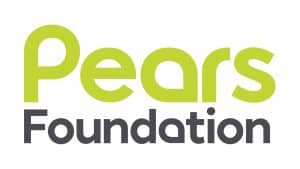Behaviour in schools is often a contested topic. As Edward Timpson noted in his 2019 review of school exclusions, the roots of challenging behaviour have long been debated by experts – at one end there are those who see poor behaviour as either a choice or the inevitable consequence of a lack of boundaries, and at the other there are those who perceive it as the communication of unmet needs. One thing that everyone agrees on, though, is that poor behaviour is a serious problem, that makes everyone’s life difficult and requires a thoughtful and evidenced-based response.
The Children and Young People’s Mental Health Coalition has completed a year-long inquiry into behaviour and mental health in schools. We explored the links between behaviour and mental health, and looked at what can be done to improve both behaviour and mental health in schools. We spoke to hundreds of young people, parents, carers and professionals to understand their views and experiences.
There has been a continuous decline in children and young people’s mental health and wellbeing over recent years. One in six children and young people aged 7 to 16 experienced a mental health problem in 2022, compared to one in nine in 2017. That’s five children in a class of 30. The number of pupils with special educational needs is now close to 1.5 million. And mental health difficulties are among the most common reasons for children having special educational needs. Schools are on the frontline of responding to this rising need.
We found that the underlying drivers of behaviour are much more complex than is sometimes assumed. We heard consistently throughout the course of the research that persistent poor behaviour may be an indication that a child has unmet or undiagnosed need or is struggling to communicate or to regulate themselves. The young people, parents and carers, and professionals who gave evidence to the inquiry also highlighted that a young person’s behaviour is linked to both their mental health and to their special educational needs and disabilities.
Schools can use a range of different techniques to support good behaviour in the classroom. Where misbehaviour does occur, it is important for schools to set out consequences and give children the opportunity to learn from their actions.
However, findings from the inquiry suggest that more punitive approaches, such as the use of removal rooms, may be harming children and young people’s mental health. Young people, parents, and professionals who took part in the inquiry reported from their experience that the use of removal rooms, exclusions, and fines and penalties for non-attendance are some of the most detrimental techniques used by schools. Phone calls home, school based community service, and verbal reprimand were viewed as some of the more helpful techniques used to respond to poor behaviour.
Moreover, punitive behaviour management techniques may not even be effective in improving behaviour. Young people and parents and carers told us that these techniques often ignore the root causes of poor behaviour, such as mental health problems, meaning that the circumstances behind it are never actually addressed. In some cases, these techniques can have the opposite effect. They can adversely impact mental health and worsen existing needs. This in turn can make the behaviour worse.
It is clearly essential for schools to have clear boundaries and consequences in place in relation to pupil behaviour. But if a child or a young person is struggling with their mental health or has special educational needs and disabilities, punitive approaches will only make things worse. It can leave schools – and teachers and pupils – trapped in a cycle of unmet need and worsening behaviour, adding to the mounting pressures they are already facing.
But schools cannot do this alone. They need to be backed up by effective systems of support for children and families. The strain on specialist services means that they can be challenging to access and waiting times for support can be extremely long.
The Government has committed to improve the availability of Mental Health Support Teams in schools. But they will only reach about a third of schools by the end of next year and there is not yet any funding to extend these teams to all areas of the country. They are also not set up to support those with the most complex needs. An evaluation of Mental Health Support Teams found that children with special educational needs and disabilities, children from racialised communities, and children with challenging family or social circumstances are some of the most underserved groups.
We need to do better by our schools, young people and families. Urgent action is needed to address the current shortfall in mental health support, by properly resourcing specialist services and expanding Mental Health Support Teams across the country.
Finally, where there is persistent poor behaviour from a child or young person, we need to be much more curious about what is driving the behaviour. By being curious, we are in a significantly better place to identify needs early and respond in a much more compassionate and ultimately effective way and make classrooms happier and safer for everyone.
Charlotte Rainer
The Children and Young People’s Mental Health Coalition





